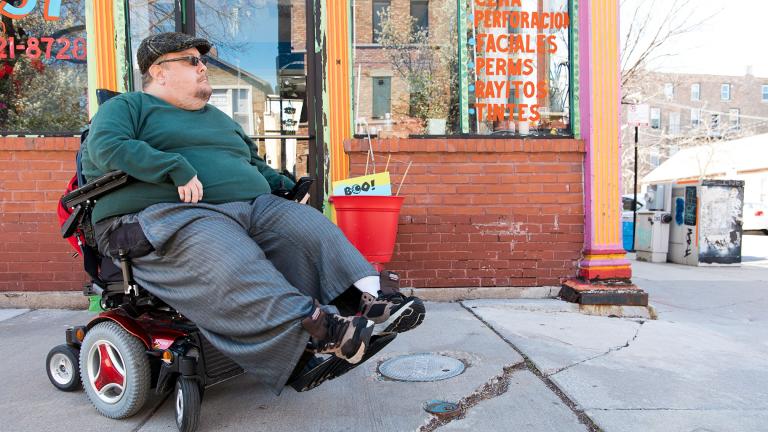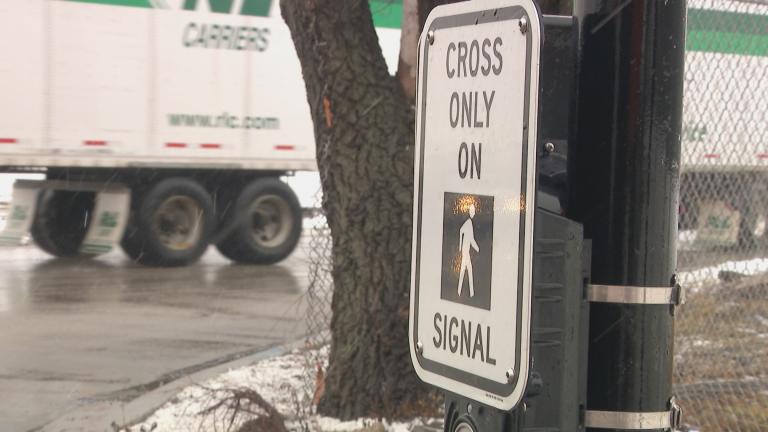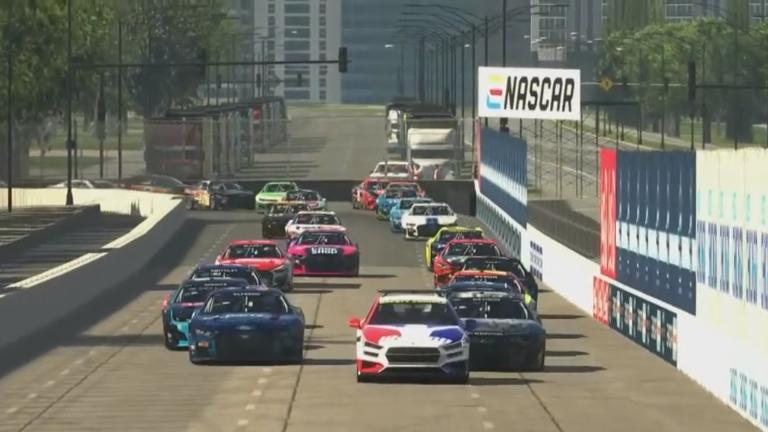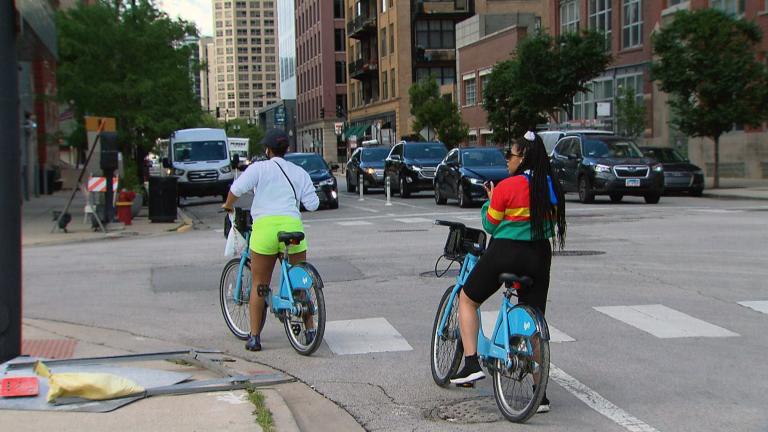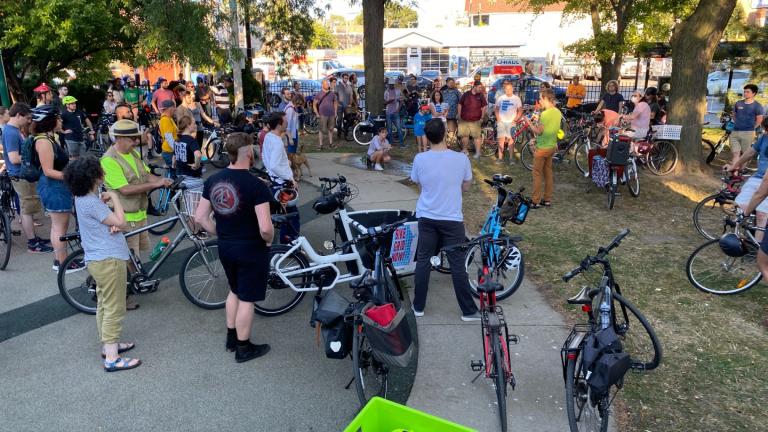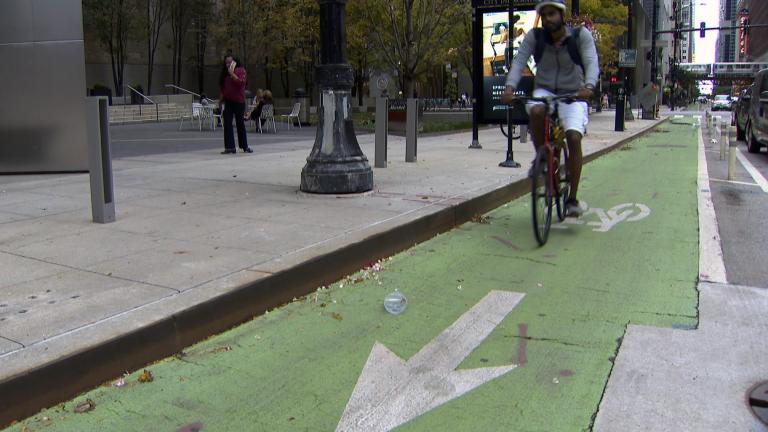Bad sidewalks can be found all across Chicago, but the slow pace in getting them repaired is tied to a lack of funding and the city’s complaint-based approach to maintenance, experts say. While a shared cost program has improved some areas, it has also caused disparities.
Chicago Department of Transportation
An independent engineering study has concluded Promontory Point’s limestone blocks are still functioning as ample shoreline protection, which refutes a longstanding position held by the Army Corps of Engineers.
Fewer than 2% of Chicago’s signalized intersections have an accessible pedestrian signal that provides auditory and tactile guidance to blind, low-vision and deafblind pedestrians — despite more than two decades of requests and years of internal acknowledgement from city staffers about the need for such accommodations.
City officials shared the latest plans for road closures, detours and alternate routes in advance of the upcoming NASCAR Street Race, and it’s going to be a bumpy ride for commuters.
Chicago was hit with a lawsuit over its overwhelming lack of accessible crosswalks in 2019. The lawsuit in 2022 became a class action covering the estimated 68,000 adults in Chicago with a vision-related disability.
Drivers who park their cars in dedicated bicycle and bus lanes, as well as crosswalks, bus stops and no parking zones, will be ticketed if the infraction is captured by city cameras mounted on poles and on the front of buses and other city vehicles, officials said.
Designed to “create safer streets and a better transit experience,” the new initiative is set to last two years, and would target scofflaws downtown, between the lake, Ashland Avenue, Roosevelt Road and North Avenue.
Last March, the Chicago Department of Transportation said it was planning to install about 150 accessible pedestrian signals in 2022 and 2023. So far, only nine of those signals are actually up and running – and only eight of them are new, since one of those installations was an upgrade to an older signal.
The Chicago City Council could vote on what the mayor’s office called a “small scale” pilot program as soon as Feb. 1 — less than a month before Election Day.
Supporters of Promontory Point can breathe a sigh of relief that the peninsula's much loved stair-step limestone wall is poised, finally, to become protected from attempts to replace it with concrete.
The City Council’s Transportation Committee advanced the measure six months after 3-year-old Lily Shambrook died while riding in a carrier on her mother’s bicycle.
The groups say they don’t just want things like protected bike lanes, signal priority for buses, and other improvements to be limited to this stretch of street, calling on the Chicago Department of Transportation to “perform critical safety and quality-of-life upgrades” in the course of every major street resurfacing citywide.
The city plans to upgrade 15 miles of existing protected bike lanes and add 10 new miles by the end of this year, and upgrade the remaining existing lanes protected by bollards or other means by the end of next year.
Authored by Ald. Brendan Reilly (42nd Ward) and Ald. Andre Vasquez (40th Ward), the measure would give employees of the Department of Finance — not just members of the Chicago Police Department — the authority to order the vehicle blocking the bicycle lane to be ticketed and towed.
The Chicago Department of Transportation said Friday that it’s launching a new community engagement effort. It will take the place of the Mayor’s Bicycle Advisory Council, Mayor’s Pedestrian Advisory Council, and the Vision Zero Advocacy Group.
While the Chicago Department of Transportation encourages residents to submit complaints of blocked bike lanes to 311, “requests sent to 311 are not sent to Administrative Hearings for ticketing,” CDOT said in a statement.

